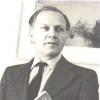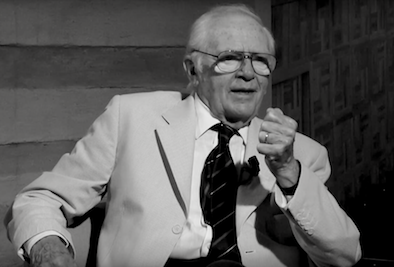Pasinetti was born on September 12, 1930, in Zanica, near Bergamo, in the north of Italy. He began his economics studies at Milan’s Università Cattolica, where he obtained his “laurea” degree in 1954. The thesis that he presented dealt with econometric models applied to the analysis of the trade cycle. As a brilliant student, he won several scholarships for graduate studies which gained him access to University of Cambridge, England (1956 and 1958), Harvard University, USA(1957) and Oxford University, England (1959) for his graduate studies. In 1960 Oxford’s Nuffield College granted him a Research Fellowship that he enjoyed until 1962, the year in which he left the University for Cambridge, called there by the prestigious economist Lord Richard Kahn. In those years,
When Luigi Pasinetti arrived in Cambridge as a research student, it was the proud citadel from which Keynesian economics had conquered the world. Cambridge economics was alive and well in the hands of Keynes’s successors. Joan Robinson and Nicholas Kaldor were producing a steady stream of original and provocative ideas. Less visible to the outside world, Richard Kahn and Piero Sraffa were equally important among the Cambridge Keynesians. The University of Cambridge was the one European center able to maintain genuine intellectual independence and to exert considerable worldwide influence against the growing dominance of American economics. The young Italian student became in time one of the foremost Cambridge economists of his generation.
— A.Leijonhufvud
Years later, Pasinetti, remembering Kahn in a Memorial Service held at King’s College Chapel, University of Cambridge on 21 October 1989, recalled that:
This is the third time, over a short span of years, that the Congregation assembles in this Chapel to commemorate, and reflect upon, the life of a major contributor to that intellectual breakthrough that has become known in the world of economics and politics as “the Keynesian Revolution”. … If one adds that another memorial service, shortly after that of Joan Robinson, was held in Cambridge, though in another Chapel, for yet another close associate of Keynes, Piero Sraffa, one cannot resist the impression that today’s ceremony concludes a whole historical phase, almost an era, in the recent history of economic thought. This group of Cambridge economists had been the protagonist of one of those extraordinary and unique events in the history of ideas that decisively pushed knowledge ahead and created a break with the past.
— L. Pasinetti
Richard Goodwin was also part of this brilliant group of Cambridge economists, and exerted the first important influence on Pasinetti. In conveying the intellectual debt he owed him, Pasinetti writes:
For me, the death of Dick Goodwin was a painful experience of mixed sorrow, sadness and regret. He was my first teacher in Cambridge. When, in October 1956, I arrived as a foreign research student almost ignorant of economics (and of English), innocent of all that had been going on, I noticed Joan Robinson’s newly published book, The Accumulation of Capital, prominently on display in the bookshop windows. […] He set me the task of reading, and reporting on, Knut Wicksell’s Lectures, where he (rightly) thought the antecedents would be found. […] Part of those interchanges between Dick Goodwin and me found expression much later in the papers that we (separately) presented at the Frostavallen Wicksell symposium (1977).[3]
— L. Pasinetti
In 1960–1961 Pasinetti became a Fellow of King’s College. Twelve years later in 1973, he was appointed Reader at the Cambridge, a post that he kept until his return to the Università Cattolica Milano in 1976. In March 1963 he was awarded his doctorate degree from Cambridge University with a Ph. Dissertation on “A Multi-sector Model of Economic Growth.” This thesis was the core of what came to be in 1981 one of his most complete books, Structural Change and Economic Growth. In 1964 he was appointed Professor of Econometrics at the Università Cattolica and in 1981 full Professor of Economic Analysis. Trips between Cambridge and Milan were very frequent during this period. In 1971 and 1975 he was appointed Visiting Research Professor at Columbia University as well as in 1979 at the Indian Statistical Institute in Calcutta and the Delhi School of Economics.
Back at his Alma Mater, Università Cattolica Milano, he was appointed Chairman of the Faculty of Economics from 1980 to 1983, Director of the Department of Economics (1983–1986) and later Director of the Joint Economics Doctoral Program (comprising three Milanese Universities: Università Cattolica, Bocconi University and University of Milan) from 1984–86 and again from 1995-98.
The list of academic distinctions and honours he has received till now is long. The most prominent ones are: St. Vincent prize for economics (1979), President of the Società Italiana degli Economisti (1986–89), Presidentof the European Society for the History of Economic Thought (1995–1997), Member of the Executive Committee of the International Economic Association, Member of the Accademia Nazionale dei Lincei, Doctor Honoris Causa at the University of Friburg (1986), Invernizzi Prize for Economics (1997). At present Pasinetti is also Honorary President of: the International Economic Association, the European Society for the History of Economic Thought, the International Economic Association, the European Association for Evolutionary Political Economy, the Italian Association for the History of Political Economy and the Italian Association for the History of Economic Thought.
He has also provided valuable contributions to several major economic journals such as editorial advisor to: the Cambridge Journal of Economics (since 1977), the Journal of Post Keynesian Economics (since its founding in 1978), Kyklos (1981), Structural Change and Economic Dynamics (since 1989), and PSL Quarterly Review (2009) to name a few.
Pasinetti is currently Emeritus Professor at the Università Cattolica Milano.

